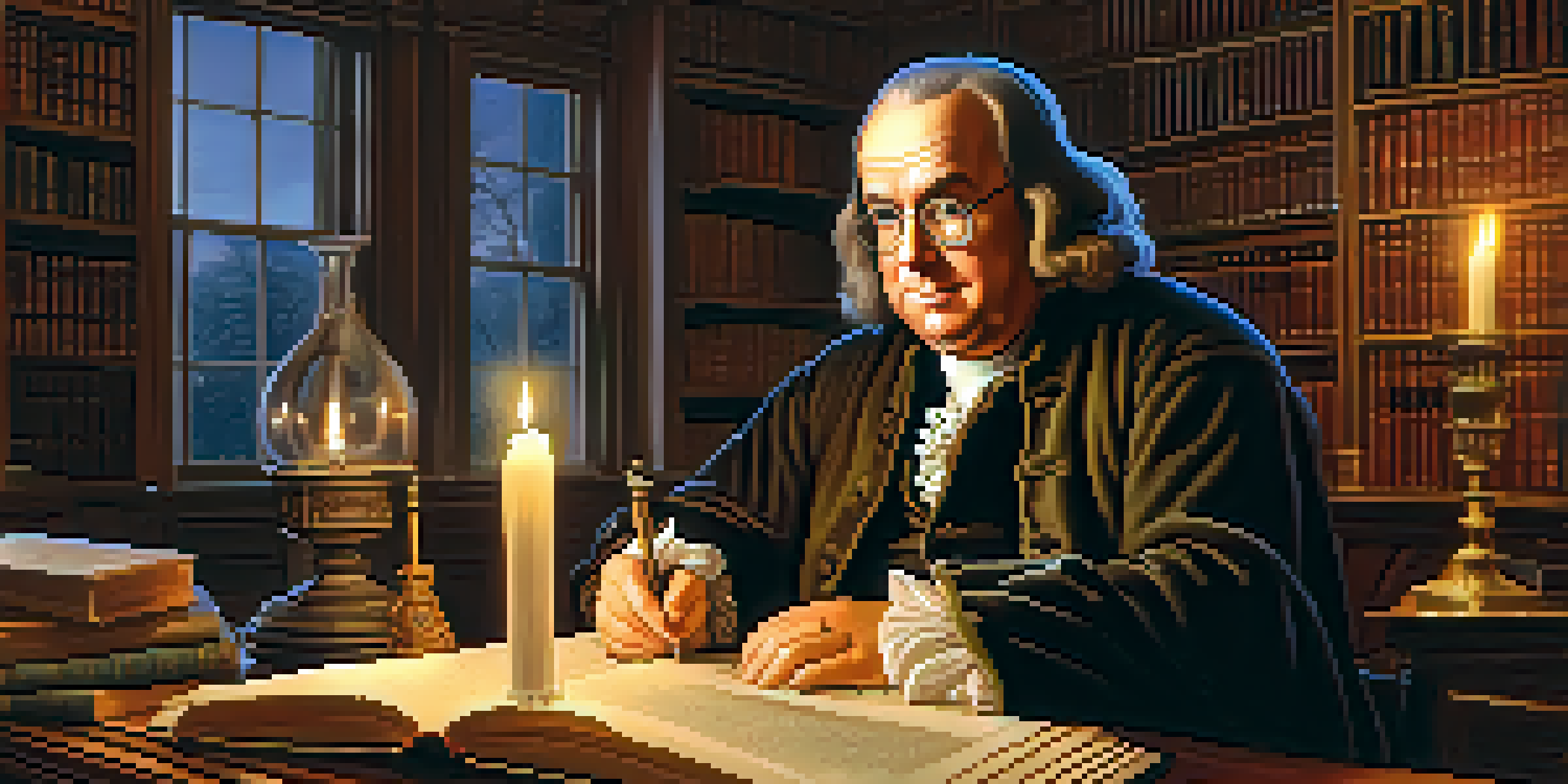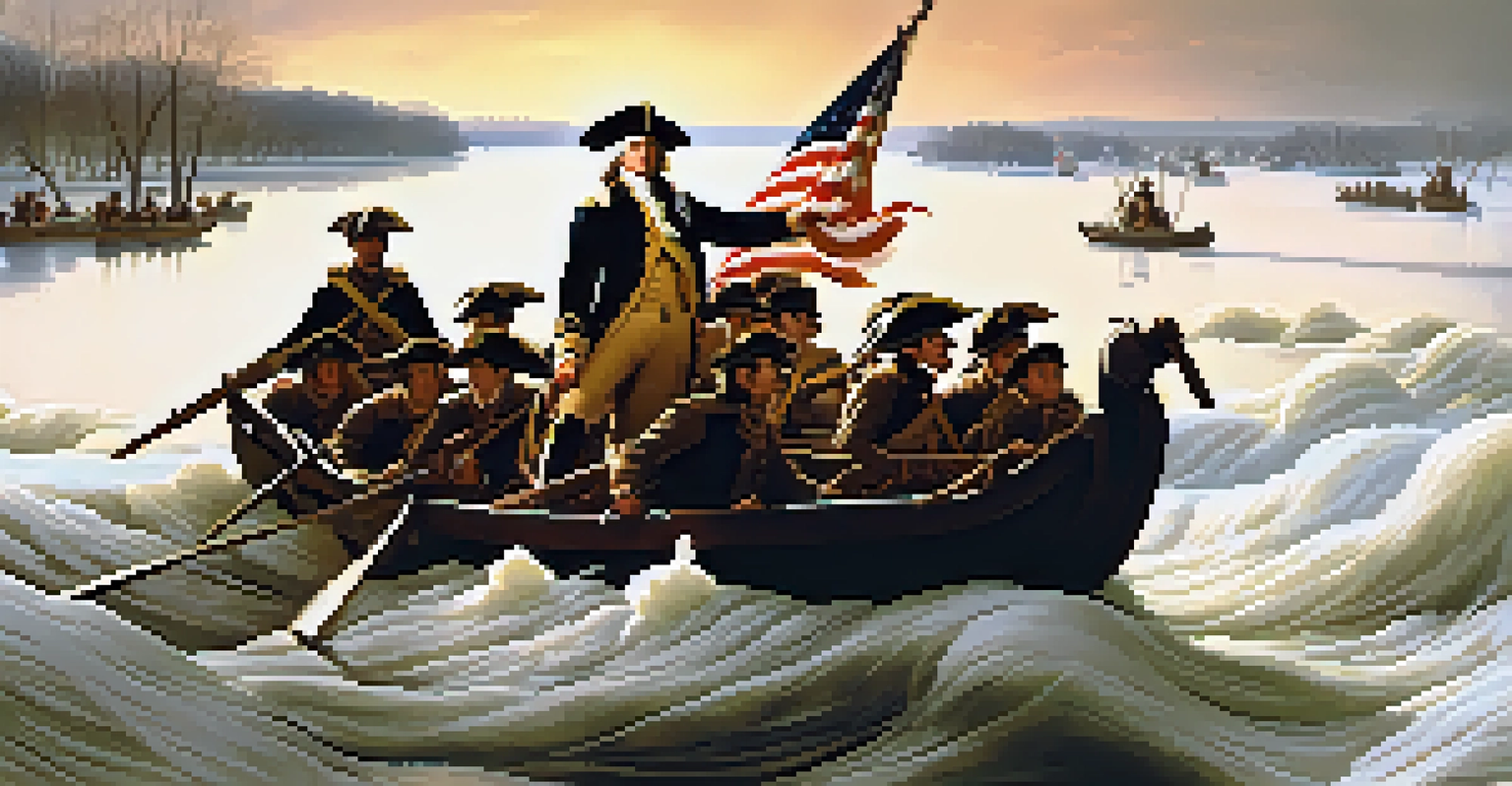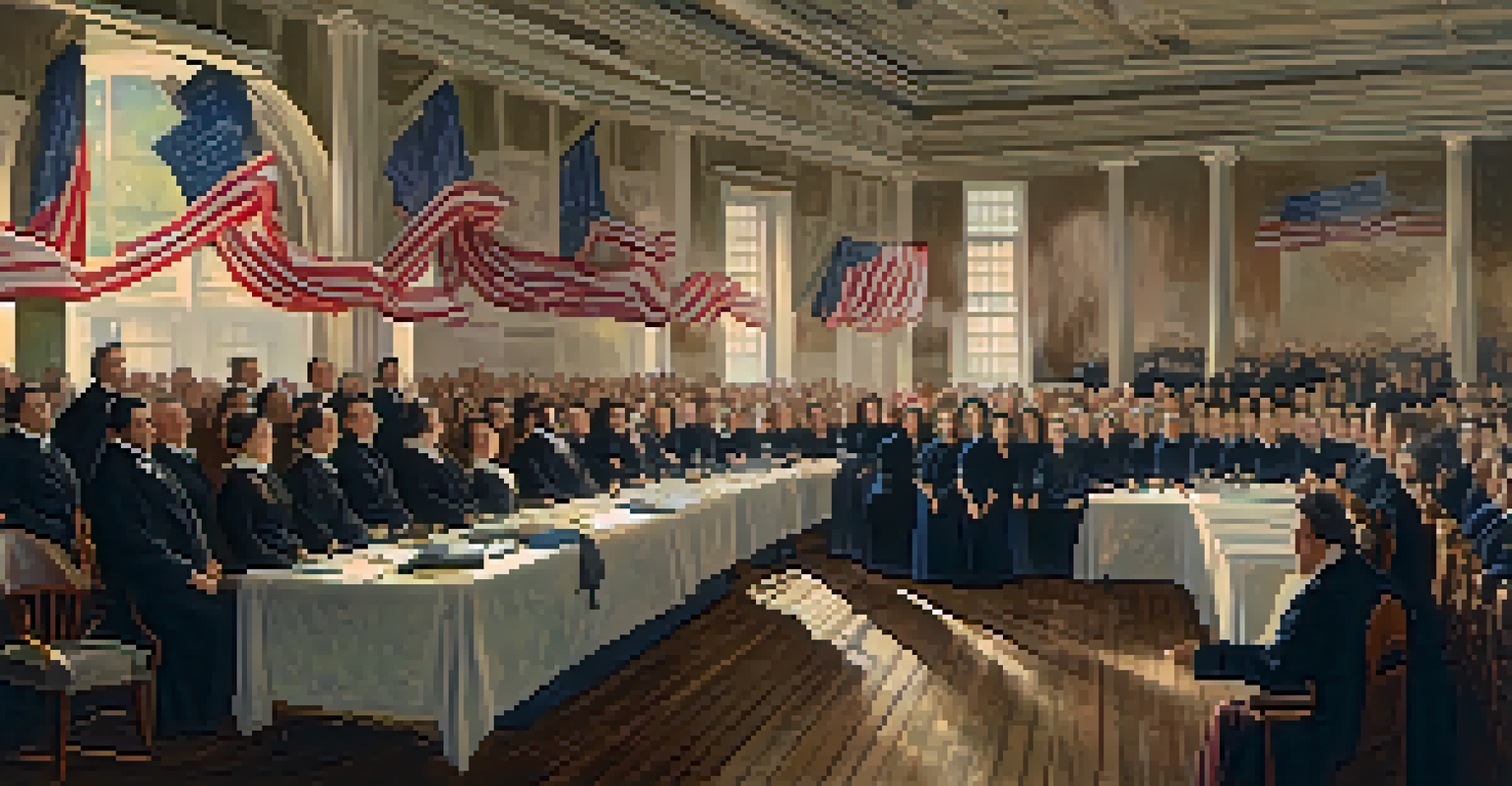Key Figures of Philadelphia During the Revolutionary Era

Benjamin Franklin: The Multifaceted Founding Father
Benjamin Franklin was more than just a founding father; he was a polymath whose influence permeated various fields, including politics, science, and diplomacy. His ability to connect with people made him a crucial figure in rallying support for the revolutionary cause. Franklin's wit and wisdom were pivotal in drafting the Declaration of Independence and later securing French support during the war.
Without the pen of the author of the Federalist Papers, the Constitution would not have been possible.
Known for his innovative spirit, Franklin's inventions, such as the lightning rod and bifocal glasses, showcased his belief in practical contributions to society. He established the first public library in America and contributed to the founding of the University of Pennsylvania. His commitment to education and community improvement reflected his vision for a more enlightened society.
Franklin's diplomatic skills were essential in negotiations with Britain and France. He served as the American ambassador to France, where he gained invaluable support for the American Revolution. His charm and intellect helped to foster alliances that proved crucial in the fight for independence.
George Washington: The Unifying Leader
George Washington emerged as a central figure during the Revolutionary Era, known for his leadership and unyielding resolve. Appointed Commander-in-Chief of the Continental Army in 1775, Washington faced numerous challenges, including lack of resources and training among his troops. His strategic mind and ability to inspire men helped turn the tide of war in favor of the colonies.

Washington's leadership style emphasized unity and perseverance, qualities that were essential in maintaining morale during the darkest days of the war. He famously crossed the Delaware River on Christmas night in 1776, leading to a pivotal victory at Trenton. This bold move exemplified his knack for surprise and strategy under pressure.
Founding Fathers Shaped Democracy
Key figures like Franklin, Washington, and Adams played pivotal roles in establishing the principles of American democracy and independence.
After the war, Washington's role transitioned from military leader to the first President of the United States, further solidifying his legacy. His decision to step down after two terms set a precedent for future leaders, emphasizing the importance of democratic principles. Washington's dedication to the nation and its ideals continues to inspire generations.
Thomas Paine: The Voice of Revolution
Thomas Paine was a passionate advocate for independence whose writings ignited revolutionary fervor among the colonists. His pamphlet, 'Common Sense,' published in 1776, argued for complete separation from Britain, making the case for independence accessible to the average citizen. Paine's ability to communicate complex ideas in relatable language rallied many to the revolutionary cause.
The price of freedom is eternal vigilance.
Paine didn't stop at advocating for independence; he also contributed to the morale of the troops through his series of essays called 'The American Crisis.' Opening with the famous line, 'These are the times that try men's souls,' his words inspired soldiers to persevere despite hardships. His ability to connect with the struggles of everyday people made him a champion of the common man.
Throughout his life, Paine remained a controversial figure, often challenging the status quo and advocating for social justice. His ideas on individual rights and government accountability influenced later democratic movements. Paine’s legacy as a revolutionary thinker continues to resonate in discussions about freedom and equality.
John Adams: The Advocate for Independence
John Adams played a significant role as a vocal advocate for independence, often seen as the backbone of the revolutionary movement. As a delegate to the Continental Congress, he tirelessly argued for the colonies' rights and was instrumental in pushing for the Declaration of Independence. His keen legal mind and persuasive arguments made him a leading figure in the quest for freedom.
Adams' commitment to justice extended to defending British soldiers after the Boston Massacre, showcasing his belief in fair trials and the rule of law. This act of bravery highlighted his dedication to principles over popularity, earning him both respect and criticism. His moral compass guided him through turbulent political waters.
Influence of Revolutionary Writers
Writers like Thomas Paine inspired the colonists through accessible and compelling arguments for independence, rallying support for the cause.
After the revolution, Adams served as the second President of the United States, further cementing his legacy. His administration faced challenges, including tensions with France, but he remained steadfast in his principles. Adams' contributions to the foundation of the nation reflect a deep commitment to democracy and governance.
Samuel Adams: The Radical Revolutionary
Samuel Adams, often considered the 'Father of the American Revolution,' was a master organizer of dissent against British rule. As a prominent member of the Sons of Liberty, he orchestrated protests like the Boston Tea Party, rallying colonists to take a stand for their rights. His fiery speeches and writings stirred public sentiment and mobilized support for the revolutionary cause.
Adams was a firm believer in grassroots activism, understanding that change often begins at the local level. He helped establish the Committees of Correspondence, which facilitated communication among the colonies about British actions. This network of information played a crucial role in unifying the colonies against a common enemy.
Despite his radical approach, Adams valued the principles of democracy and republicanism. He later served in the Continental Congress and helped draft the Massachusetts Constitution. His relentless pursuit of liberty and justice continues to inspire activists today.
Elizabeth Cady Stanton: A Voice for Women's Rights
Although often overshadowed by her male counterparts, Elizabeth Cady Stanton made significant contributions during the Revolutionary Era, particularly in advocating for women's rights. Her early involvement in the movement for independence laid the groundwork for her later work in women's suffrage. Stanton believed that the ideals of freedom and equality should extend to women as well.
Stanton's famous declaration at the Seneca Falls Convention in 1848 marked the beginning of the women's rights movement in America. Her call for equal rights resonated with many, echoing the revolutionary ideals of liberty and justice. She argued that just as the colonies sought freedom from oppression, women deserved the same rights and recognition.
Women’s Rights in the Revolution
Elizabeth Cady Stanton laid the groundwork for women's suffrage by advocating for equal rights, connecting the fight for gender equality to revolutionary ideals.
Stanton's work was instrumental in shaping the discourse around women's rights, making her a pioneering figure in the fight for equality. Her partnership with Susan B. Anthony amplified her efforts, bringing national attention to the cause. Stanton's legacy is a reminder of the ongoing struggle for women's rights, rooted in the revolutionary spirit.
James Madison: The Architect of the Constitution
James Madison is often heralded as the 'Father of the Constitution' for his pivotal role in drafting and promoting the foundational document of the United States. His keen understanding of governance and human nature shaped the framework of American democracy. Madison's commitment to a balanced government was evident in his advocacy for the separation of powers.
During the Constitutional Convention, Madison presented the Virginia Plan, which proposed a strong central government. His ability to negotiate and compromise helped lay the groundwork for the Constitution's eventual ratification. Madison’s Federalist Papers further articulated the principles of the new government, emphasizing the need for a system of checks and balances.

Madison's influence extended beyond the convention, as he later served as the fourth President of the United States. His presidency faced challenges, including the War of 1812, but his foundational work in establishing the nation's governance remains his enduring legacy. Madison's insights into democracy continue to inform political thought today.
Paul Revere: The Midnight Rider
Paul Revere is best known for his midnight ride on April 18, 1775, which warned American patriots of the approaching British forces. This daring ride became a symbol of American resilience and the spirit of revolution. Revere's famous call to action helped prepare the colonists for the battles of Lexington and Concord, marking the start of open conflict.
Revere was not just a silversmith but also an active member of the Sons of Liberty, contributing to the revolutionary cause in various ways. His craftsmanship and artistry reflected the values of American ingenuity and independence. His involvement in the Boston Tea Party and other protests demonstrated his commitment to challenging British authority.
Revere's legacy extends beyond his midnight ride; it serves as a reminder of the importance of individual action in the face of tyranny. His story has been immortalized in literature and folklore, capturing the imagination of generations. Paul Revere's ride exemplifies the spirit of courage and determination that fueled the American Revolution.